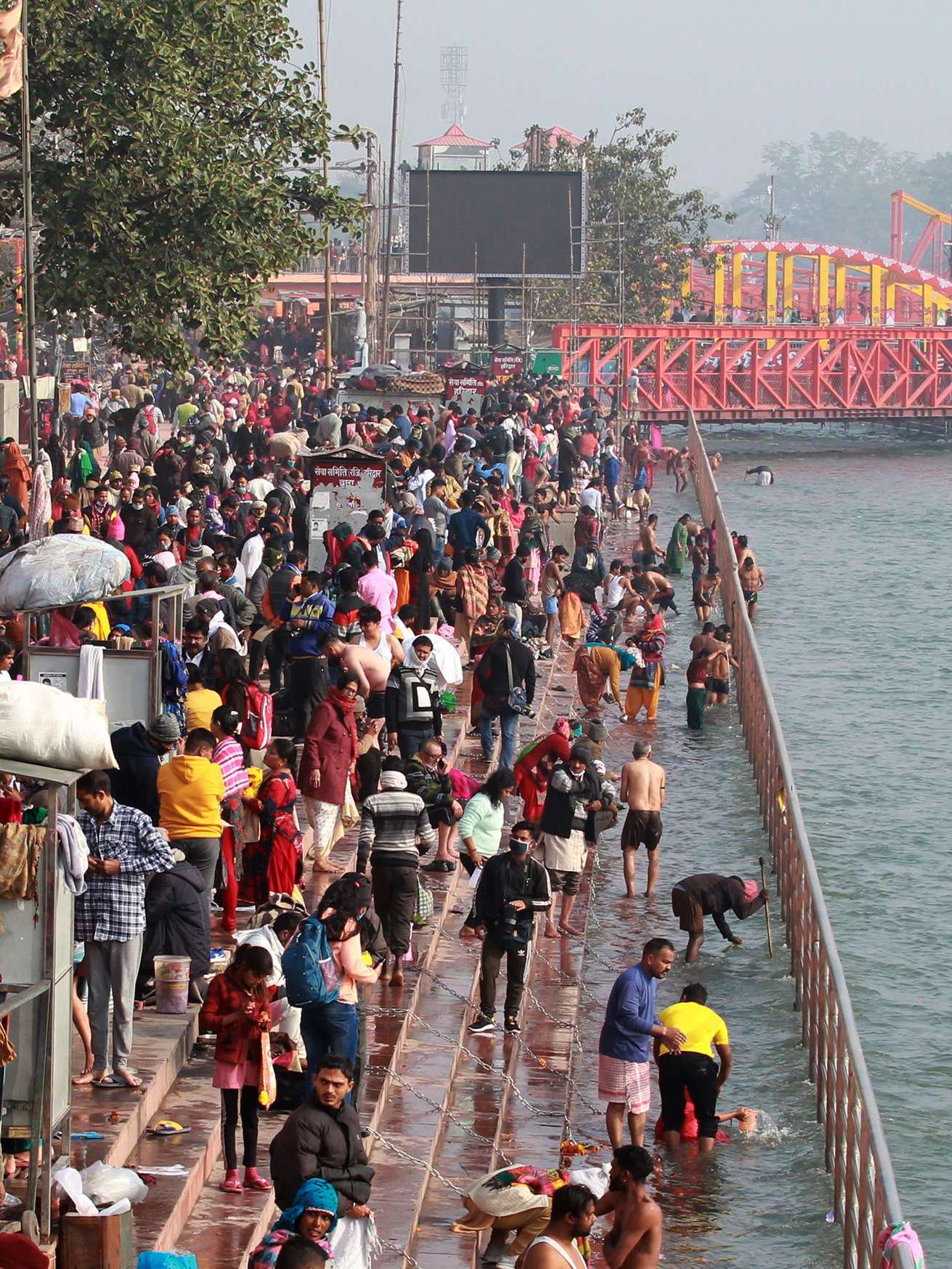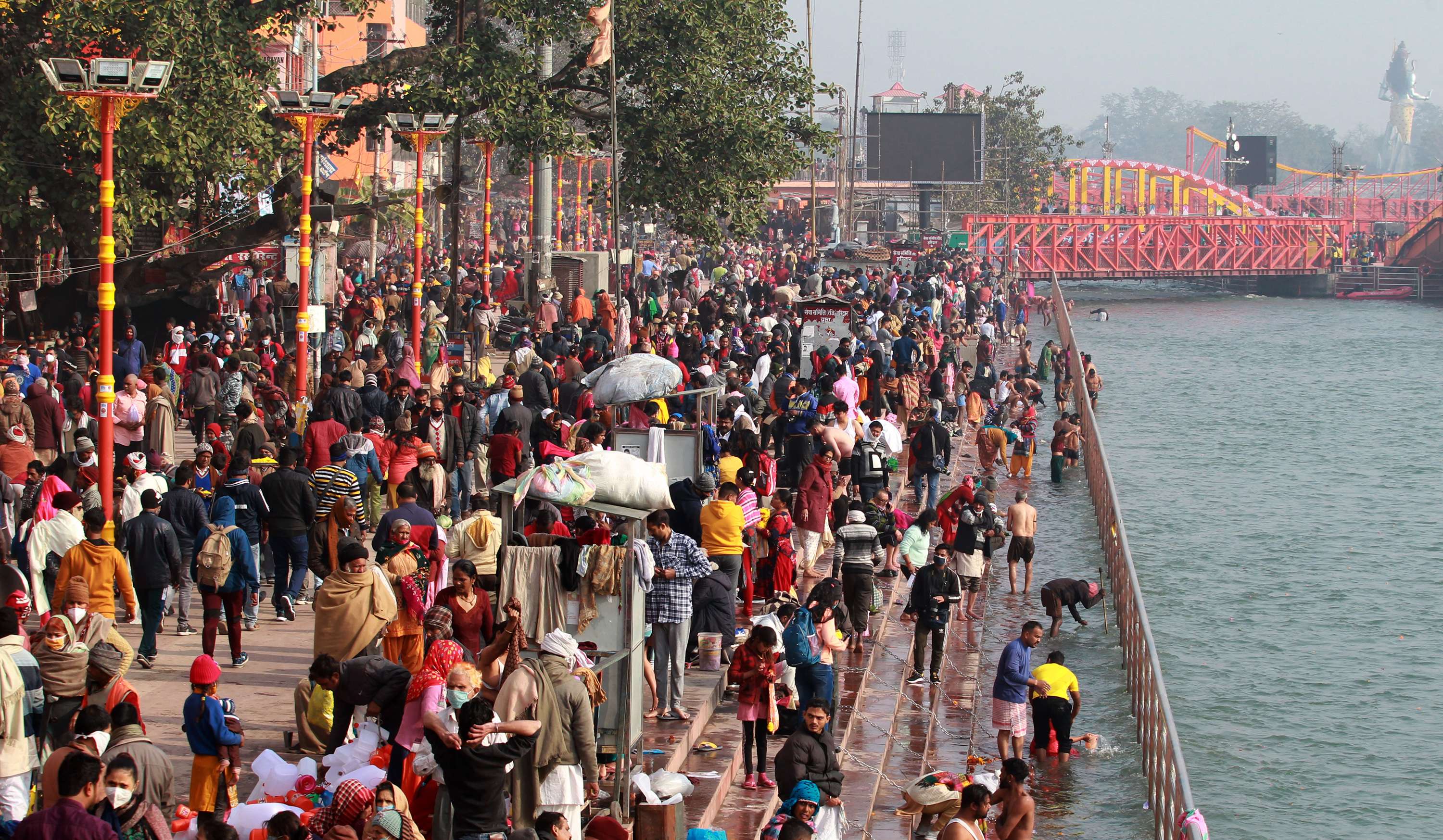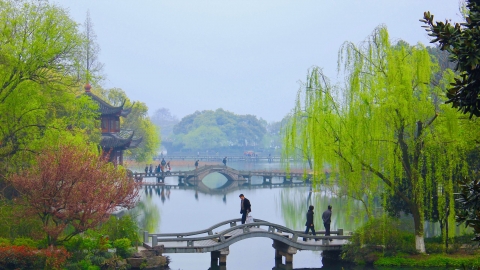The Kumbh Mela is a major pilgrimage and festival in Hinduism, held approximately every 12 years at four main locations along the riverbanks. It is considered the "world's largest religious pilgrimage." UNESCO has also officially recognized the festival on its "Representative List of the Intangible Cultural Heritage of Humanity."
Every year, this festival season attracts tens of millions of participants, with the Kumbh Mela festival in 2011 setting a record with 60 million people.
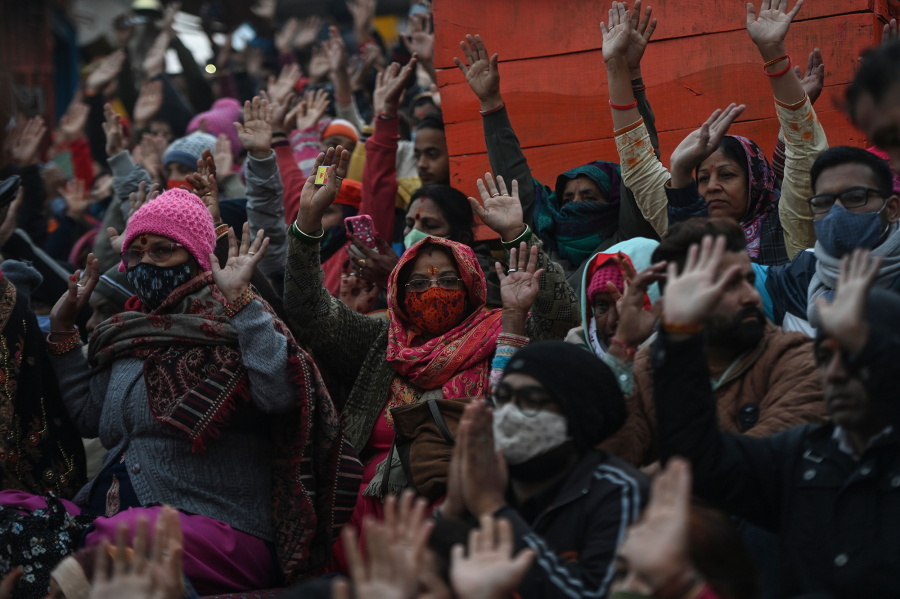
Hindu devotees participate in prayers on the banks of the Ganges River before the Kumbh Mela festival in Haridwar on January 13.
This year's festival is taking place while the Covid-19 pandemic is still ongoing. Nevertheless, an estimated more than one million pilgrims have gathered on the banks of the Ganges River in northern India. Millions more are expected to flock to Haridwar (India) in the coming weeks.
Believers think that immersing themselves in the Ganges River during the festival season will help them cleanse themselves of past sins and wrongdoings.
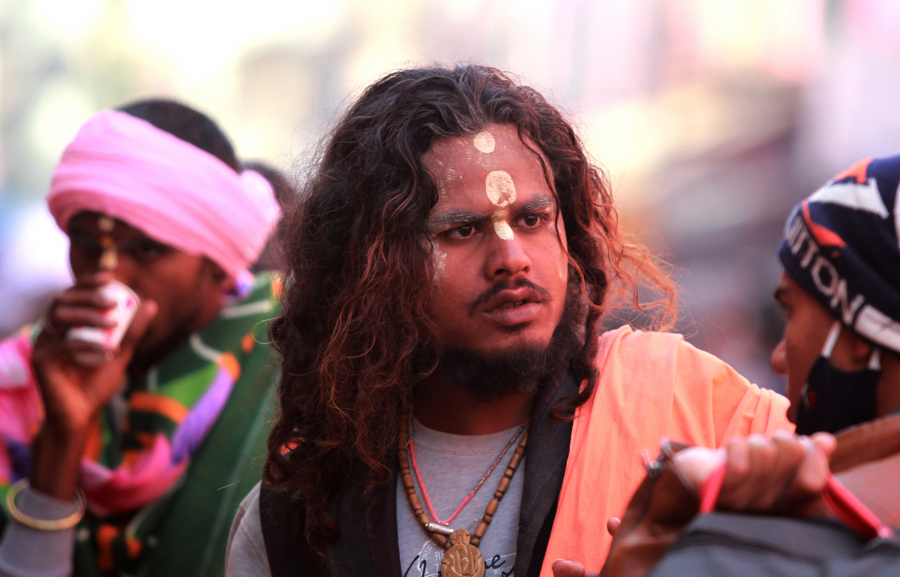
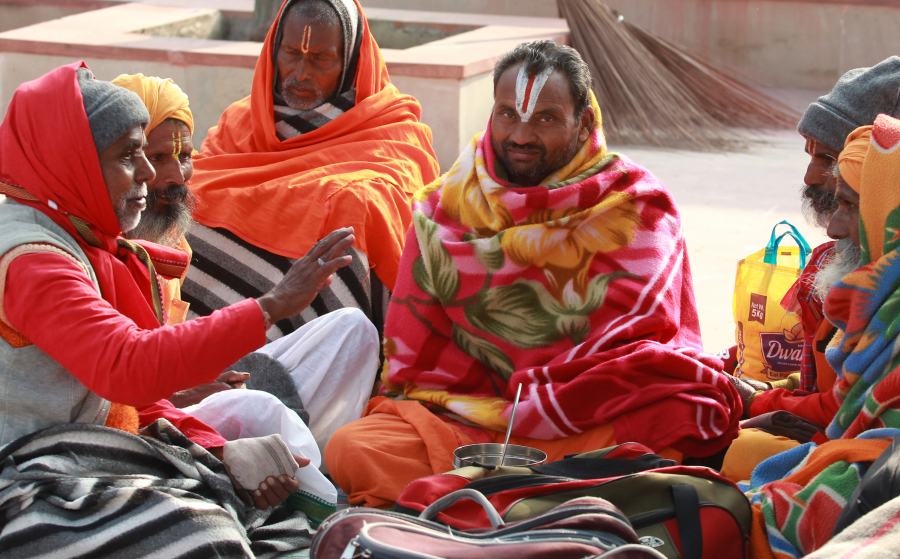
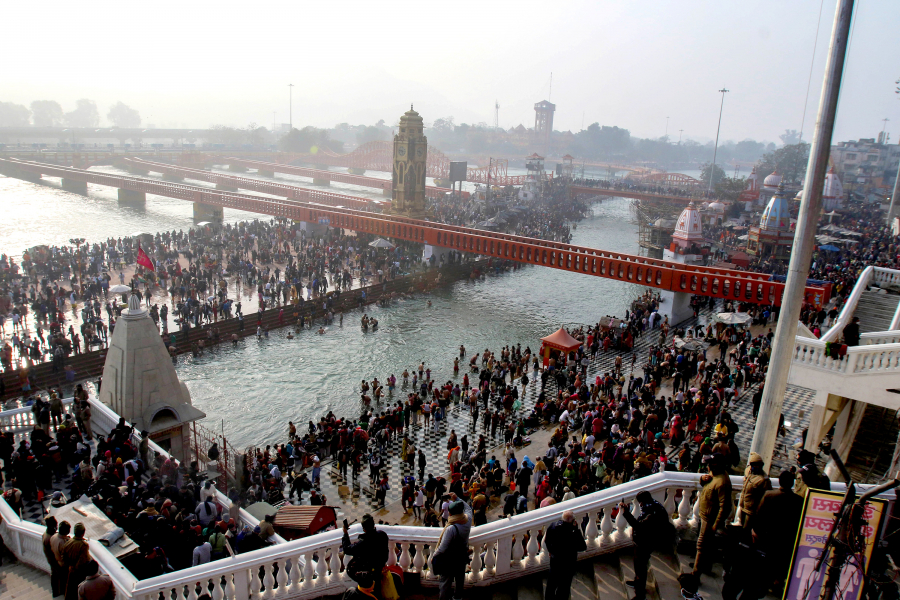
Hindu devotees gather at the Ganges River during the Makar Sankranti festival on January 14th.
Local officials said they have implemented various measures to prevent the spread of the disease, including requiring pilgrims to book accommodations in advance to control numbers, strictly enforcing social distancing, and using color-coded barriers to separate bathing areas.
However, according to media observations, most pilgrims bathing in the Ganges River on January 14th were not wearing masks. Due to the large number of participants, the organizers faced many difficulties in maintaining social distancing.
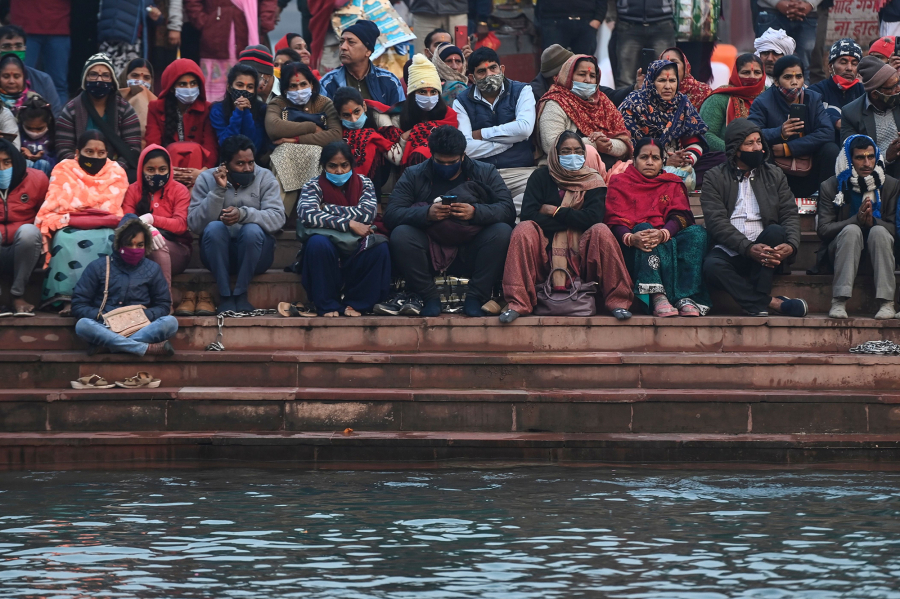
Due to the large number of participants, the organizers faced many difficulties in maintaining social distancing.
Sanjay Sharma, a 50-year-old pilgrim, said, "India is different from Europe because it has better immunity. I'm sad that the number of people coming here isn't as high as in previous seasons."

 VI
VI EN
EN



